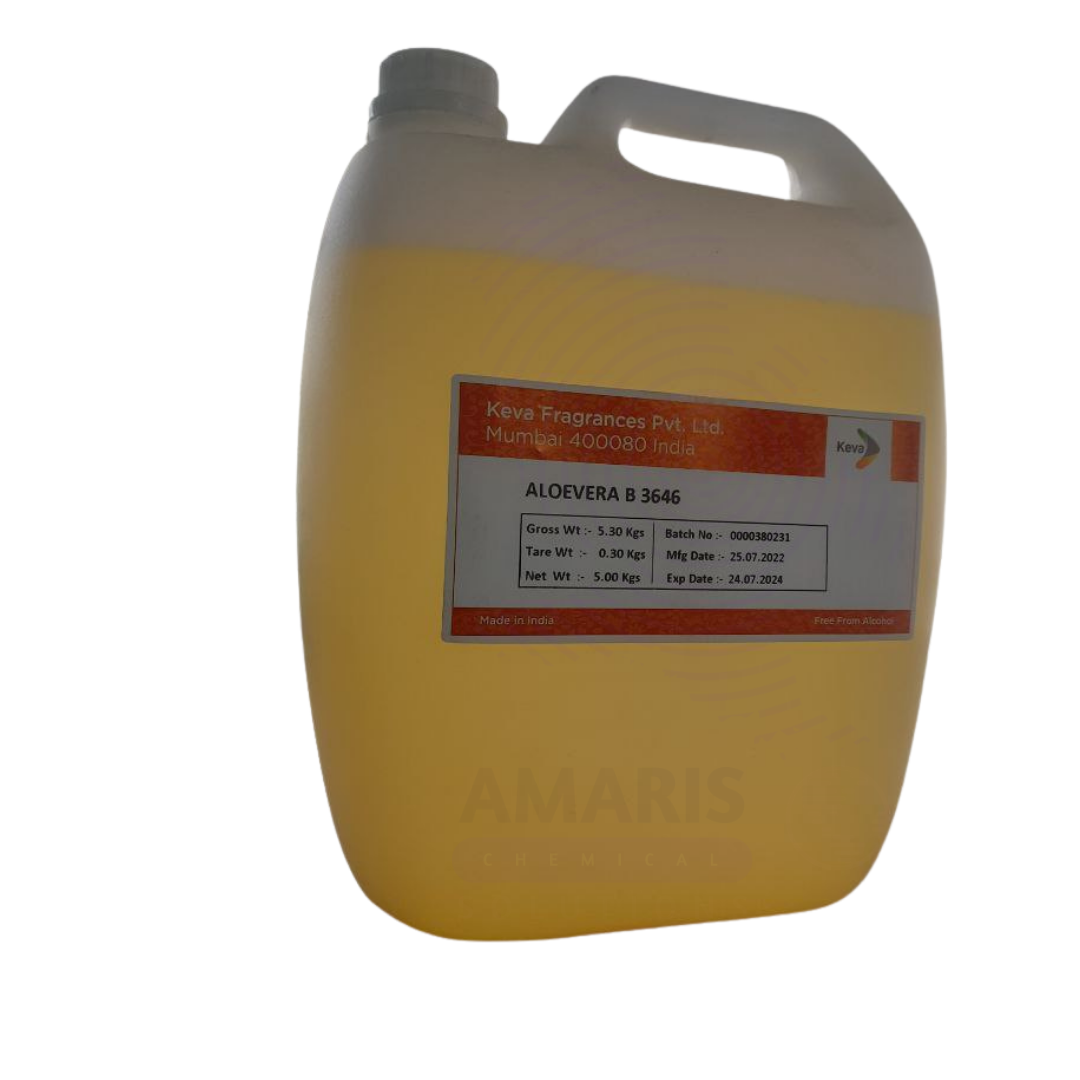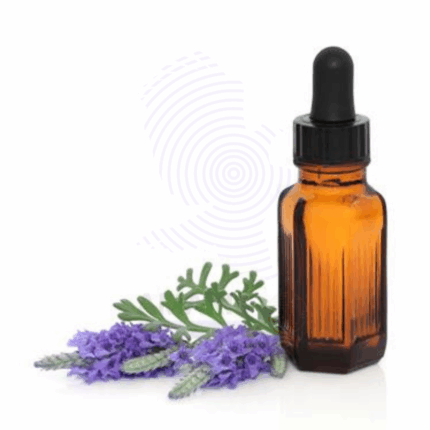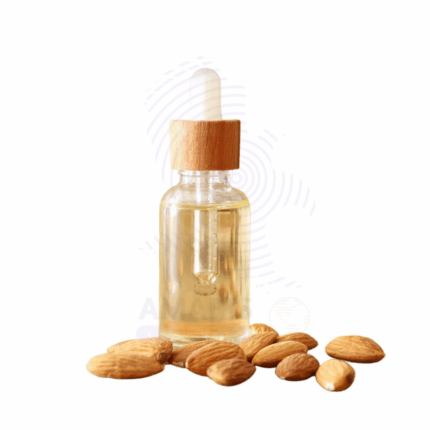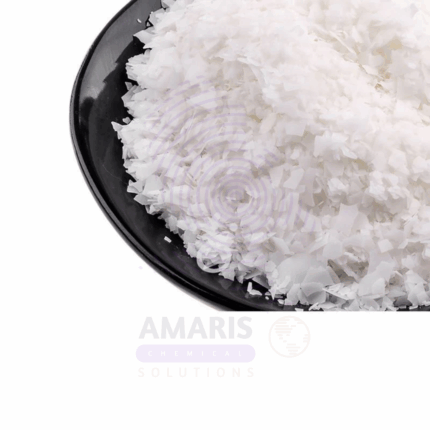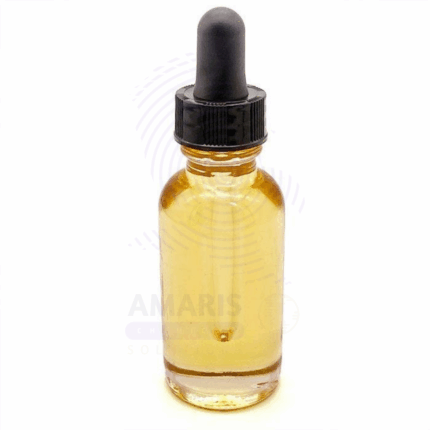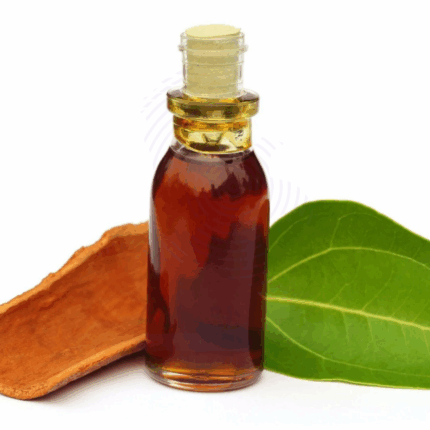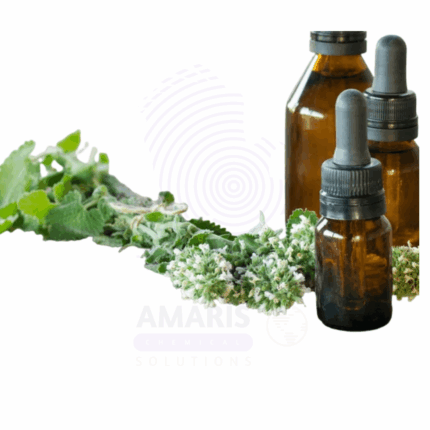Back to products


Ammonium Molybdate Extra Pure
$ 18.00 Original price was: $ 18.00.$ 17.76Current price is: $ 17.76.
Aloe Vera Fragrance Oil
$ 25.00 Original price was: $ 25.00.$ 24.83Current price is: $ 24.83.
Whatsapp Order
Aloe Vera Fragrance Oil is a synthetic fragrance blend that captures the fresh, clean, and soothing aroma of natural aloe vera. It is widely used to enhance the sensory appeal of cosmetic, personal care, and household products. The oil is concentrated, stable, and compatible with various formulations such as lotions, creams, soaps, and air fresheners, providing a calming and revitalizing fragrance experience.
Description
Table of Contents
Toggle
Aloe Vera Fragrance Oil
Primary Uses
- Cosmetic and Personal Care
- Used in lotions, creams, and bath products to impart a fresh aloe vera scent.
- Incorporated in soaps and body washes for clean and soothing fragrance.
- Added to air fresheners and room sprays to create a refreshing atmosphere.
- Household Products
- Used in candle making to provide aloe vera aroma.
- Included in aromatherapy blends for relaxation and mood enhancement.
Secondary Uses
- Industrial Applications
- Utilized in the manufacture of scented cleaning products.
- Employed in the production of perfumed oils and massage oils.
Additional information
| PACK SIZE |
25kg ,5kg |
|---|
KEY PRODUCT FEATURES
1. Basic Identification Attributes
- Botanical Source: Synthetic
- Common/Trade Name: Aloe Vera Fragrance Oil
- INCI Name: Fragrance (Parfum)
- CAS Number: Proprietary blend
- HS Code: 3302.10
- Synonyms: Aloe Vera Scent Oil
2. Physical & Chemical Properties
- Physical State: Liquid oil
- Color & Odor: Pale yellow; fresh aloe vera scent
- Solubility: Soluble in oils and alcohols; insoluble in water
- Density: Approx. 0.9 g/cm³
- Shelf Life: 24 months under proper storage
3. Safety & Hazard Attributes
- GHS Classification: May cause skin irritation in sensitive individuals
- Toxicity: Low toxicity; avoid ingestion
- Allergen Information: Potential allergen for sensitive skin
- Exposure Limits: Follow occupational safety guidelines
4. Storage & Handling Attributes
- Storage Conditions: Store in a cool, dry place away from direct sunlight
- Container Type: Sealed metal or glass containers
- Shelf Life: 24 months when stored properly
- Handling Precautions: Use gloves and avoid direct skin contact for sensitive individuals
5. Regulatory & Compliance Attributes
- Complies with fragrance industry regulations
- Manufactured in GMP-compliant facilities
6. Environmental & Health Impact
- Biodegradability: Moderate; dispose according to local regulations
- Ecotoxicity: Low environmental impact at typical use concentrations
- Bioaccumulation: Not expected
SAFETY HANDLING PRECAUTIONS
Safety Handling Precautions
- PPE Required: Gloves for sensitive skin
- Handling Guidelines: Avoid prolonged skin contact
First Aid Measures
- Inhalation: Move to fresh air if irritation occurs
- Skin Contact: Wash with soap and water
- Eye Contact: Rinse thoroughly with water
- Ingestion: Seek medical advice
Firefighting Measures
- Fire Hazards: Combustible liquid
- Extinguishing Media: Foam, dry chemical, CO2
- Special Precautions: Avoid inhaling fumes
- Hazardous Combustion Products: Carbon monoxide, carbon dioxide
Related products
Abies Alba oil
Abies Alba Oil, also known as Silver Fir Needle Oil, is a high-purity essential oil extracted via steam distillation from the needles and twigs of the European Silver Fir (Abies alba). Native to the alpine forests of Europe, this oil is prized for its crisp, forest-fresh aroma and therapeutic versatility. Rich in naturally occurring monoterpenes such as alpha-pinene and bornyl acetate, Abies Alba Oil possesses purifying, anti-inflammatory, and antimicrobial qualities.
Its clean, invigorating scent supports respiratory wellness, emotional balance, and mental clarity, making it a popular ingredient in aromatherapy and spa products. It is also used extensively in cosmetic formulations for its deodorizing, skin-soothing, and aromatic effects. Abies Alba Oil is a natural solution for enhancing wellness and sensory experiences across multiple industries.
Almond Fragrance Oil
Almond Fragrance Oil is a synthetic or naturally blended aromatic compound designed to replicate the warm, sweet, and nutty scent of almonds. It may incorporate notes of marzipan, vanilla, or cherry-like tones to mimic the characteristic aroma of bitter almonds without the presence of cyanogenic compounds. Unlike essential oils, fragrance oils are created for consistent aroma performance and are widely used across cosmetics, personal care, household products, and scented formulations.
This versatile oil delivers a nostalgic, comforting scent often associated with desserts, cleanliness, and warmth. It is valued for its stability in soaps, lotions, candles, and air care products. Almond Fragrance Oil is typically formulated to be allergen-compliant and IFRA-certified for safe use across applications.
Almond Wax
Almond Wax is a natural, plant-based wax derived from the hydrogenation of almond oil (Prunus amygdalus dulcis). It is a creamy to white, semi-solid wax with a mild, nutty scent and excellent emollient properties. Almond Wax is rich in fatty acids and has a smooth, soft texture, making it ideal for use in cosmetic, personal care, and candle formulations.
Due to its gentle consistency, skin-friendly profile, and moisturizing capabilities, Almond Wax is widely used in body butters, balms, lip care products, massage bars, and artisan soaps. It functions as a natural alternative to petroleum-based waxes and provides structure, viscosity, and glide to formulations. It also finds application in soft wax blends for natural candle products.
Basil Exotic oil
Basil Exotic Oil is a steam-distilled essential oil extracted from the leaves of the Ocimum basilicum plant, specifically cultivated for its high linalool and methyl chavicol (estragole) content. Known for its sweet, herbaceous, and slightly spicy aroma, Basil Exotic Oil offers powerful aromatic and therapeutic properties. It is widely used in perfumery, cosmetics, personal care products, and aromatherapy for its stimulating, clarifying, and refreshing effects.
The oil’s high potency and distinctive scent make it a preferred choice in high-end fragrances, hair care products, and massage blends. It is also appreciated for its antibacterial, antifungal, and anti-inflammatory characteristics, making it valuable in natural wellness and skincare formulations.
Camphor White Oil
Camphor White Oil is a steam-distilled essential oil obtained from the wood of the Camphor tree (Cinnamomum camphora), primarily from the white fraction, which is rich in 1,8-cineole, camphor, and linalool. This fraction is the most commonly used in aromatherapy and topical preparations due to its potent but relatively balanced composition compared to brown or yellow fractions. The oil has a sharp, penetrating aroma with a cooling, medicinal character.
Traditionally used in topical pain relief, respiratory care, and soothing balms, Camphor White Oil is known for its anti-inflammatory, decongestant, antiseptic, and stimulating effects. It is widely used in cosmetics, personal care, pharmaceuticals, and aromatherapy formulations.
Capaiba Balsam Oil
Capaiba Balsam Oil is a natural oleoresin essential oil extracted from the trunks of Copaifera species, primarily Copaifera officinalis, native to South America. This oil is obtained via tapping or sustainable extraction methods and is prized for its anti-inflammatory, antibacterial, antioxidant, and analgesic properties. It has a sweet, woody, slightly balsamic aroma and is golden to light brown in color with a medium viscosity.
Copaiba Balsam Oil is rich in β-caryophyllene, a sesquiterpene known for its therapeutic effects, especially in skincare and wellness applications. It is widely used in cosmetics, personal care, aromatherapy, and pharmaceutical preparations, particularly those targeting pain, skin health, and inflammation.
Cassia Oil
Cassia Oil is a potent essential oil steam-distilled from the bark of Cinnamomum cassia, commonly known as Chinese cinnamon. It carries a strong, spicy, and warm aroma similar to true cinnamon but is more pungent and intense. Its reddish-brown to yellow appearance and high cinnamaldehyde content give it powerful antimicrobial, antifungal, and warming properties. Cassia Oil is used across various industries including food flavoring, pharmaceuticals, cosmetics, aromatherapy, and household products. Due to its strength, it is typically used in diluted concentrations.
Catnip Oil
Catnip Oil is a highly aromatic essential oil steam-distilled from the leaves and flowering tops of Nepeta cataria, a herbaceous plant from the mint family. Known for its characteristic minty, herbaceous, and slightly sweet scent, Catnip Oil contains nepetalactone, a compound recognized for its insect-repellent and calming properties. Though commonly associated with its euphoric effects on cats, Catnip Oil is widely used in aromatherapy, natural insect repellents, and personal care products for humans. It also finds niche applications in pet care formulations and herbal preparations.


 Preservatives(food)
Preservatives(food) Flavor Enhancers
Flavor Enhancers Acidulants
Acidulants Sweeteners
Sweeteners Antioxidants
Antioxidants Colorants(food)
Colorants(food) Nutraceutical Ingredients (food)
Nutraceutical Ingredients (food) Nutrient Supplements
Nutrient Supplements Emulsifiers
Emulsifiers
 Collectors
Collectors Dust Suppressants
Dust Suppressants Explosives and Blasting Agents
Explosives and Blasting Agents Flocculants and Coagulants
Flocculants and Coagulants Frothers
Frothers Leaching Agents
Leaching Agents pH Modifiers
pH Modifiers Precious Metal Extraction Agents
Precious Metal Extraction Agents
 Antioxidants(plastic)
Antioxidants(plastic) Colorants (Pigments, Dyes)
Colorants (Pigments, Dyes) Fillers and Reinforcements
Fillers and Reinforcements Flame Retardants
Flame Retardants Monomers
Monomers Plasticizers
Plasticizers Polymerization Initiators
Polymerization Initiators Stabilizers (UV, Heat)
Stabilizers (UV, Heat)
 Antifoaming Agents
Antifoaming Agents Chelating Agents
Chelating Agents Coagulants and Flocculants
Coagulants and Flocculants Corrosion Inhibitors
Corrosion Inhibitors Disinfectants and Biocides
Disinfectants and Biocides Oxidizing Agents
Oxidizing Agents pH Adjusters
pH Adjusters Scale Inhibitors( water)
Scale Inhibitors( water)
 Antioxidants(cosmetic)
Antioxidants(cosmetic) Emollients
Emollients Fragrances and Essential Oils
Fragrances and Essential Oils Humectants
Humectants Preservatives
Preservatives Surfactants(cosmetic)
Surfactants(cosmetic) Thickeners
Thickeners UV Filters
UV Filters
 Fertilizers
Fertilizers Soil Conditioners
Soil Conditioners Plant Growth Regulators
Plant Growth Regulators Animal Feed Additives
Animal Feed Additives Biostimulants
Biostimulants Pesticides (Herbicides, Insecticides, Fungicides)
Pesticides (Herbicides, Insecticides, Fungicides)
 Active Pharmaceutical Ingredients (APIs)
Active Pharmaceutical Ingredients (APIs) Excipients
Excipients Solvents(pharmaceutical)
Solvents(pharmaceutical) Antibiotics
Antibiotics Antiseptics and Disinfectants
Antiseptics and Disinfectants Vaccine Adjuvants
Vaccine Adjuvants Nutraceutical Ingredients (pharmaceutical)
Nutraceutical Ingredients (pharmaceutical) Analgesics & Antipyretics
Analgesics & Antipyretics
 Analytical Reagents
Analytical Reagents Solvents(lab)
Solvents(lab) Chromatography Chemicals
Chromatography Chemicals Spectroscopy Reagents
Spectroscopy Reagents microbiology-and-cell-culture-reagents
microbiology-and-cell-culture-reagents Molecular Biology Reagents
Molecular Biology Reagents Biochemical Reagents
Biochemical Reagents Inorganic and Organic Standards
Inorganic and Organic Standards Laboratory Safety Chemicals
Laboratory Safety Chemicals Specialty Laboratory Chemicals(Special Laboratory Equipment)
Specialty Laboratory Chemicals(Special Laboratory Equipment)
 Demulsifiers
Demulsifiers Hydraulic Fracturing Fluids
Hydraulic Fracturing Fluids Scale Inhibitors(oil)
Scale Inhibitors(oil) Surfactants(oil)
Surfactants(oil) Drilling Fluids
Drilling Fluids
 Dyes and Pigments
Dyes and Pigments Bleaching Agents
Bleaching Agents Softening Agents
Softening Agents Finishing Agents
Finishing Agents Antistatic Agents
Antistatic Agents
 Admixtures
Admixtures Waterproofing Agents
Waterproofing Agents Sealants and Adhesives
Sealants and Adhesives Curing Compounds
Curing Compounds Concrete Repair Chemicals
Concrete Repair Chemicals Anti-Corrosion Coatings
Anti-Corrosion Coatings
 Surfactants(cleaning)
Surfactants(cleaning) Builders
Builders Enzymes
Enzymes Solvents (Cleaning)
Solvents (Cleaning) Fragrances
Fragrances
 Electronic Chemicals
Electronic Chemicals Catalysts
Catalysts Lubricants
Lubricants Photographic Chemicals
Photographic Chemicals Refrigerants
Refrigerants Automotive chemicals
Automotive chemicals Pyrotechnic Chemicals
Pyrotechnic Chemicals
 Biodegradable Surfactants
Biodegradable Surfactants Bio-based Solvents
Bio-based Solvents Renewable Polymers
Renewable Polymers Carbon Capture Chemicals
Carbon Capture Chemicals Wastewater Treatment Chemicals
Wastewater Treatment Chemicals
 Pigments
Pigments Solvents(paint)
Solvents(paint) Specialty Coatings
Specialty Coatings Binders/Resins
Binders/Resins Additives
Additives Driers
Driers Anti-Corrosion Agents
Anti-Corrosion Agents Functional Coatings
Functional Coatings Application-Specific Coatings
Application-Specific Coatings
 Fresh Herbs
Fresh Herbs Ground Spices
Ground Spices Whole Spices
Whole Spices Spice Blends
Spice Blends Dried Herbs
Dried Herbs
 Leavening Agents
Leavening Agents Dough Conditioners
Dough Conditioners Flour Treatments
Flour Treatments Fat Replacers
Fat Replacers Decoratives
Decoratives Preservatives(baking)
Preservatives(baking)
 Plasticizers & Softeners
Plasticizers & Softeners Reinforcing Agents
Reinforcing Agents Adhesion Promoters
Adhesion Promoters Vulcanizing Agents
Vulcanizing Agents Antidegradants
Antidegradants Blowing Agents
Blowing Agents Fillers & Extenders
Fillers & Extenders Accelerators & Retarders
Accelerators & Retarders